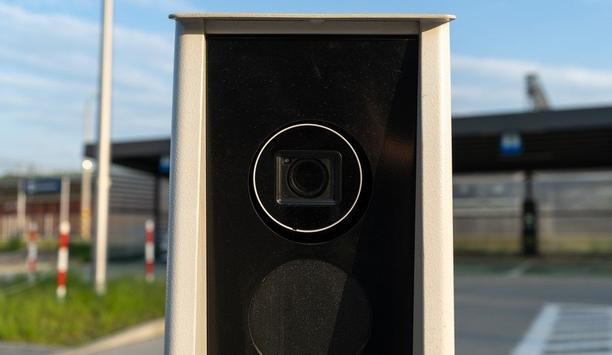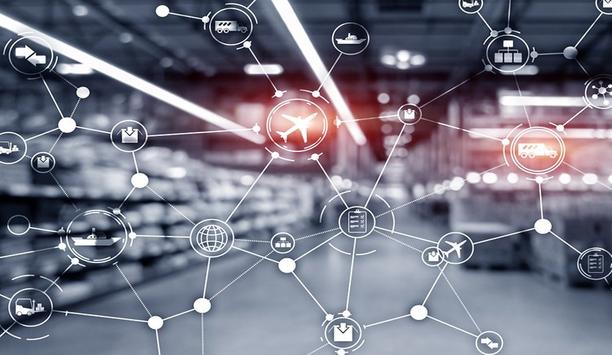Network cameras - Round table discussions
The most common wearable device deployed by security professionals is the body-worn camera. Traditionally used by law enforcement professionals, these devices are finding more and more uses in the corporate security world, and even impacting issues such as customer service. However, the term “wearables” also encompasses a range of other devices, including many worn by consumers. We asked this week’s Expert Panel Roundtable: How are wearable technologies impacting the security m...
Every day, the physical security industry succeeds in applying technologies that make the world a safer place. Manufacturers, integrators, and end users are eager to share their success stories, and their successes can inspire others to implement the same technology solutions. But, occasionally, technology does not live up to expectations and, in fact, fails to perform as promised. We asked this week’s Expert Panel Roundtable: How has the physical security industry failed to meet customer...
For many years, security systems produced their share of "data exhaust." Every access control action and each video image became a data point to be stored in perpetuity, with no practical way to use the data. More recently, systems have been developed to enable organizations to analyze data from sensors and other connected devices to gain valuable insights into how their systems are being used, to identify potential vulnerabilities; and even to provide insights into broader enterprise operations...
In the United States, they are called licence plate recognition (LPR) systems. In Europe, the more common term is automated licence number-plate recognition (ANPR). In either case, the systems provide capabilities that can benefit a range of applications from schools to municipalities to parking lots. Newer technologies can even identify vehicle colour, type, make and model. We asked this week’s Expert Panel Roundtable: What's new with licence plate recognition (LPR) and/or automated numbe...
As physical security technologies become more complex, it is incumbent on the dealer/integrator to have the skills and expertise needed to ensure that a system operates smoothly. The value of integrators increasingly rests on the skill sets they bring to bear when installing a system. If the skills are missing, there is a problem. We asked this week’s Expert Panel Roundtable: What missing skills among security integrators can cause problems for customers?
Historically, the emphasis of security systems has been on reactivity, whether it’s providing video evidence of an incident or data to support a resulting investigation. Reactivity is core to impactful security, but increasingly, systems are also seeking to be more proactive. A proactive system seeks to prevent events from happening in the first place, thus mitigating the harm to an organisation, and making the need for a reactive response moot. We asked this week’s Expert Panel Roun...
The role of the integrator/installer in the physical security marketplace is shifting as technologies evolve and applications expand. Integrators are being faced with a need to augment their expertise both in a wider range of systems and deeper into the specifics of each increasingly complex technology. At the end of the day, it falls to the integrator/installer to ensure a system performs as promised, however much a consultant or even a manufacturer might be involved in the process. We asked th...
Deployed across a wide range of devices, the Internet of Things (IoT) collects data to help business owners make decisions on a macro scale as well as at a granular level. The IoT is a network of physical devices embedded with sensors, software, and network connectivity that allows them to collect and share data. We called on this week's Expert Panel Roundtable to comment on the intersection of the IoT and physical security. We asked: How is the Internet of Things (IoT) increasing the effectiven...
Every security system is unique, of course. Specific to each installation are the problems the customer and the integrator may experience along their journey. However, given the installation of hundreds of physical security systems, there are commonalities that occur. We asked this week’s Expert Panel Roundtable: What are the major pain points when installing a physical security system?
Big Data is a persistent buzzword in the broader technology realm and in the physical security market. More every year, it seems we see a greater impact of the compilation of numerous data sources (Big Data) on our market. Smart leaders in the industry are looking at the vast opportunities that exist to leverage Big Data into greater intelligence and situational awareness. We asked this week’s Expert Panel Roundtable: What is the intersection of the security market and "big data?"
Challenges of the global supply chain have reverberated into the physical security marketplace in a big way in recent years. Dealers who historically could count on timely delivery of equipment have instead faced extended delays that in some cases have jeopardised their businesses. By most accounts, the situation is improving, so we turned to our Expert Panel Roundtable for an update. Our question this week: What is the current state of the physical security supply chain?
As much as we each seem to live in our own bubble, the reality is that everything is connected and we are all part of a greater whole. So it is with the security market, which can be both inward-focused and also play a role in the bigger societal picture. A couple of recent questions we posed to the Expert Panel Roundtable highlight how the security market can and should interact with society in general.
A multi-factor authentication is a layered approach that requires users to provide two or more verification factors, such as credentials, to gain access to data and applications. If one of the credentials is compromised, the thinking goes, an unauthorised user will still be unable to meet the second authentication requirement and will be denied access to a targeted physical space, computing device, network, or database. Cybersecurity applications have long embraced the idea of MFA, which is also...
Like any year, 2022 was full of surprises for the physical security industry. Adapting to supply chain shortages, lightning-fast technology development, and changing occupancy patterns in a shifting labor market were just a few of the factors that kept security professionals guessing in 2022. Wonder what the new year will hold? We asked this week’s Expert Panel Roundtable: What will be the biggest surprise for security in the year ahead (2023)?
Since they were invented, video surveillance cameras have been used mostly for security applications. However, the advent of video analytics and artificial intelligence (AI) has paved the way for use of video data in a variety of other applications, from process control to measuring occupancy to analysing customer traffic trends. The ‘data’ aspects of ‘video data’ are feeding many new applications that no longer involve operators looking at video images on a screen. We as...
Connectivity is literally the difference between products operating individually and those combined into a more powerful system. Many of the devices that connect today’s security products reflect mature technologies that have been proven over time. However, innovation is also driving the need for new approaches to connectivity and networking. We asked this week’s Expert Panel Roundtable: What are the new developments in networking and connectivity for security?
Machine learning refers to the evolving ability of computer systems to learn and adapt without following explicit instructions. It essentially involves the use of algorithms and statistical models to analyse and draw conclusions from patterns in data. In the security industry, when it comes to buzzwords, artificial intelligence (AI) has a higher profile than the more specific related term, although machine learning is a better description of tools that are gaining popularity in physical security...
The security trade show season is resuming this fall with the GSX show in the United States and Security Essen in Germany, among other upcoming industry events. The return of trade shows is gathering momentum following the COVID lockdowns and cancellations with plenty more shows coming soon. But how useful is attending industry trade shows? We asked this week’s Expert Panel Roundtable: What do you accomplish by attending a security industry show?
Six months can go by in the blink of an eye. In 2022, it almost seems as if it has. Here we are already at mid-year after what has been an eventful six months for the security marketplace. There is still a lot ahead in 2022 for the industry, and our Expert Panel Roundtable has been considering what the coming months might hold in terms of technology change. We asked this week’s panelists: What will likely be the most important technology development in the security marketplace in the secon...
The Internet of Things (IoT) is driving innovation in the security marketplace, just as it is in almost every other market. IoT devices, also known as ‘edge devices’, provide sensing, processing ability, software, and other technologies to connect and exchange data. The most common edge devices in the world of IP security are video cameras, which are becoming more intelligent and capable of processing the data they collect. We asked this week’s Expert Panel Roundtable: How are...
The price of a security system and the value it provides are two different things. For end users, the objective is to minimise price, while maximising value. A system may both have a higher price and provide greater value, but not always. Because customers want to pay as little as they can, it is necessary to make a case that a system provides the best possible value, whatever the cost. We asked this week’s Expert Panel Roundtable: How can customers go beyond price to maximise the ‘...
The advantages of security systems as forensic and investigative tools are well understood and demonstrated in the market. However, the new trend is toward systems that are useful in real-time and that even predict a security event, before it happens. We asked this week’s Expert Panel Roundtable: Which security systems are becoming more proactive than reactive?
The last regularly scheduled spring ISC West trade show was held in 2019. The show returned last year with a rescheduled event in the summer, and attendees were largely pleased with the offerings. However, the ‘real’ ISC West, in the spring in Las Vegas, Nevada, will resume a decades-old tradition in 2022 that has been a major driver of industry market growth and innovation. The show is also an annual reunion of sorts for the security industry, and we are all ready for a reunion! We...
Supply chain issues have plagued the economic recovery during and after the COVID-19 pandemic, and the problems show every indication of persisting for months or even years to come. Supply chain challenges have impacted the security marketplace in many ways, reflecting the breadth and variety of products needed to secure people, facilities, and assets. Wondering about the specifics of that impact, we asked this week’s Expert Panel Roundtable: How does disruption of the global supply chain...
Environmental concerns and ‘green’ initiatives have been gaining steam recently with increasing attention to issues, such as climate change and the drive to ‘net zero’ emissions. Sustainability has not historically been a big concern in the physical security market, but the times are changing. We asked this week’s Expert Panel Roundtable: How can the security industry be more environmentally friendly and contribute to sustainability?
Traditionally, security has been seen as a cost centre rather than as a profit centre or a source of revenue in an organisation. Therefore, end-user security managers have struggled to cost-justify their purchases of security systems: How can you assign value to preventing a catastrophic loss unless or until such a loss happens (which you’re trying to avoid!). Even so, security’s return on investment (ROI) picture is changing, with expanded system capabilities and technologies that p...
The COVID-19 pandemic has complicated the task of securing hospitals and healthcare facilities by adding new concerns about disease transmission to the long list of other threats healthcare security professionals face. Hospital security must also crack the code to both allow open public access to healthcare facilities while keeping out violence and other security threats. We asked this week’s Expert Panel Roundtable: What are the security challenges of the healthcare industry?
Sadly, active shooter incidents have become so common that they no longer grab big headlines or dominate the news cycle. A near-constant cascade of active shooter events persists in the background of our collective consciousness, a familiar drumbeat that is no less tragic because it is continuous. As more active shooter incidents occur, the security marketplace continues to implement solutions to minimise the impact, including gunshot detection. We asked this week's Expert Panel Roundtable: What...
The death of Michael Brown at the hands of police in Ferguson, Missouri, in August 2014, highlighted to the public, the importance of body-worn cameras. There was no bodycam footage of the Ferguson tragedy. Arguably, it would have shed additional light on the shooting. Since then, body cameras have become a tangible legacy of Ferguson, Missouri. Bodycam footage is seen as providing greater accountability and ensuring an impartial record that can support, or debunk, any claims of police miscondu...
Many of the threats facing the energy and utility sector are related to cybersecurity, as recent incidents have confirmed. Another problem is that operating systems for utilities tend to be outdated, which presents extra challenges in a connected world. There are also physical security demands, not to mention regulatory and social issues. We asked this week’s Expert Panel Roundtable: What are the security trends in energy and utilities?
The ultimate guide to mastering key control
DownloadUsing artificial intelligence (AI) to automate physical security systems
DownloadA modern guide to data loss prevention
Download7 proven solutions for law enforcement key control and asset management
DownloadThe truth behind 9 mobile access myths
Download


































